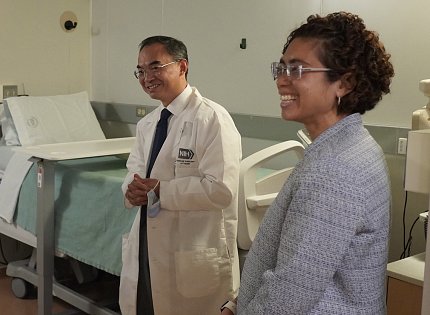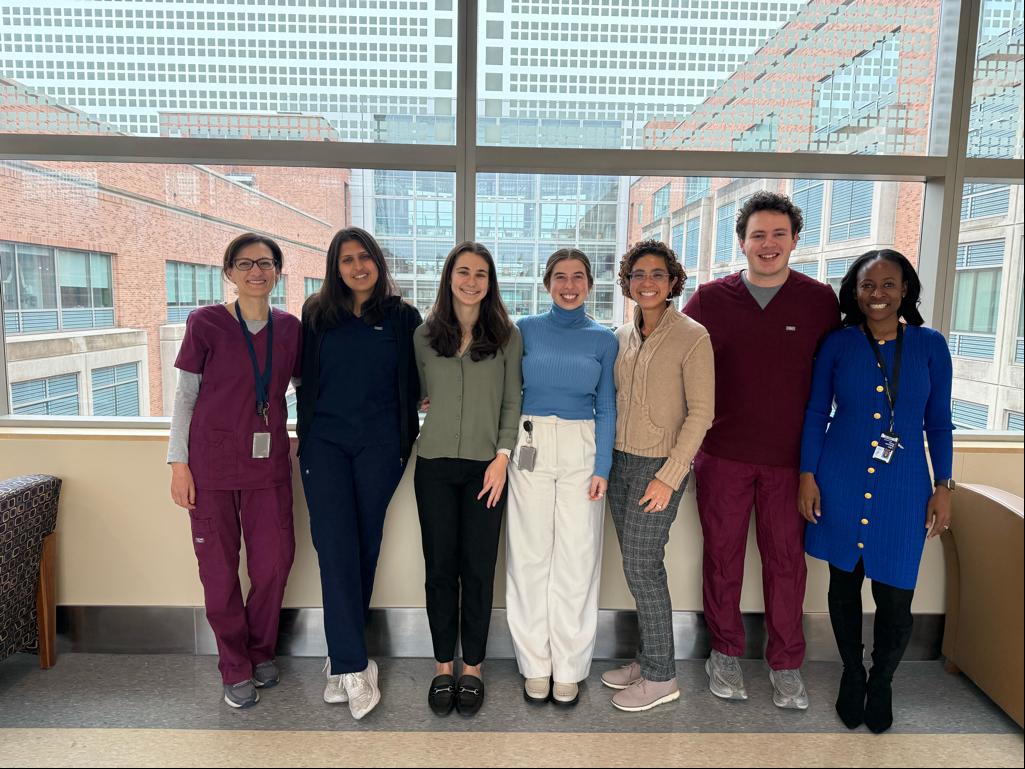Catching Up
Chung Decodes Pediatric Type 2 Diabetes

Why do some people get sick and others don’t?
This question has fueled NIH researcher Dr. Stephanie Chung’s interest in medicine since childhood. Her father was a cardiologist in Kingston, Jamaica where Chung grew up, and she and her sister would accompany him on his weekend hospital rounds.
“I did run away from medicine at first,” she admitted, recalling being put off by the hardships of her father’s career. But, when she volunteered in the pediatric unit of her father’s hospital after completing undergraduate studies, she felt drawn to the children there.
“I was struck by youth with obesity and diabetes and the relatively few treatment options available to them—at an early age and as they transition into adulthood,” she explained.
Chung attended medical school at the University of the West Indies and pursued a dual residency in internal medicine and pediatrics. She came to NIH as an assistant clinical investigator in 2013 and progressed to acting chief in the section on pediatric diabetes, obesity and metabolism in NIH’s National Institute of Diabetes and Digestive and Kidney Diseases (NIDDK). She also runs a joint research program with the Children’s National Hospital in Washington, D.C.
Chung’s research seeks to understand how the interaction of genes, social environment and lifestyles contribute to development outcome discrepancies in pediatric diabetes, obesity and heart disease. Her work is rooted in the belief that “improving health outcomes in diabetes and obesity means educating and caring for our youth and young adults, and empowering them and their families to lead healthy lifestyles.”

Photo: Maria Maslennikov
Type 2 diabetes is a chronic disease occurring most commonly in middle-aged and older adults, but youth-onset type 2 diabetes (Y-T2D), once rare, is becoming increasingly prevalent. The disease progression in adolescents and young adults is faster than in older adults and young patients often require more medication sooner to maintain healthy blood sugar levels. Metformin, a common drug used to treat type 2 diabetes, is significantly less effective in younger patients. Additionally, people with Y-T2D may develop early evidence of heart disease within 5 years of Y-T2D diagnosis, suggesting a much faster progression than older adults experience.
Chung wants to improve techniques for identifying individuals at high risk for Y-T2D and heart disease and investigate why some adult treatments do not work well in younger patients. Her section conducts two groups of studies to further this goal: MIGHTY (metformin influences gut hormones in type 2 youth) and Young at Heart. MIGHTY focuses on improving current treatment regimens by understanding root causes, and Young at Heart follows Y-T2D patients and healthy control peers to define the causes and timing of developing heart disease.
“Our goal is to understand [disease progression], tailor medications and provide foundational data for larger trials,” Chung summarized.
Chung’s combination of research and medicine in the realm of Y-T2D earned her a Lasker Clinical Scholars award in 2020. The program supports a small number of exceptional early-career clinical researchers to promote their development to fully independent positions. She also pays it forward by mentoring post-baccalaureate students and clinical research fellows in her lab.
Chung encourages her mentees to approach and seek advice from many mentors, guidance she received from her own teachers.
“No one person is going to fit in your exact shoes, and that’s a good thing,” said Chung. “Success is born out of hard work [and learning from] people from all different backgrounds, experiences, abilities, and world views.”

